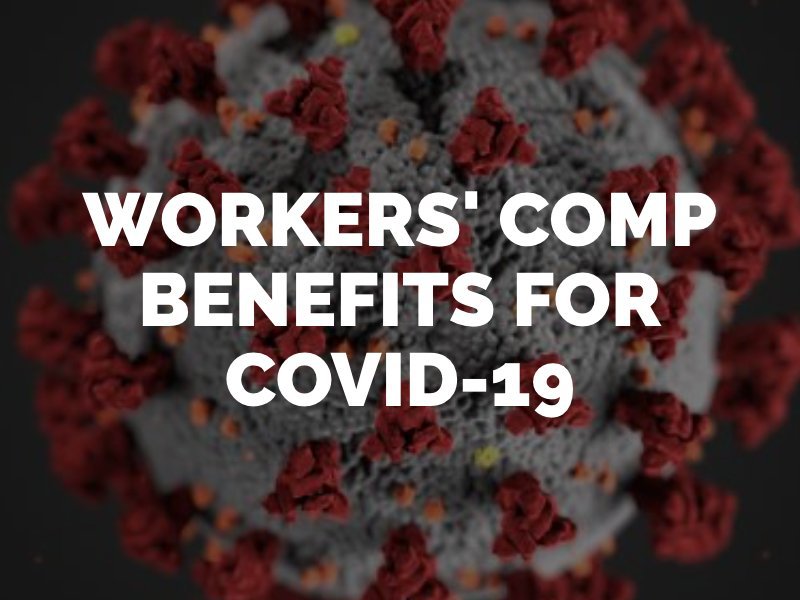Can You Get Workers’ Compensation Benefits for COVID-19?
California’s workers’ compensation system is in place to pay workers for the costs and losses associated with an illness or injury obtained on the job. If you are curious about filing a workers’ compensation claim for COVID-19, note that for the most part, you can only do so if you work in a high-risk industry, such as health care. There are limited other circumstances, however, that may enable you to obtain workers’ comp benefits for COVID-19 in California.

How Does California’s Workers’ Comp System Work?
The California workers’ compensation system is a no-fault insurance program that is required for all employers in California. If you work as an employee (not an independent contractor), you are covered by workers’ comp insurance. Workers’ comp provides financial compensation to cover medical expenses, lost wages and disability for an employee who gets injured or becomes ill from work-related activities, without requiring proof of fault or negligence.
To qualify for workers’ comp, an employee must prove that the illness arose out of the course and scope of employment and that it was caused by conditions specific to the job. In exchange for no-fault benefits, the worker forfeits the right to file a liability lawsuit against the employer. You may qualify for workers’ compensation benefits after contracting COVID-19 on the job without having to prove that your employer was to blame for exposure.
Does Workers’ Compensation Cover COVID-19?
The answer depends. Determining whether or not workers’ compensation will cover COVID-19 requires an in-depth analysis of your specific situation. Most states have passed laws stating that COVID-19 will not be covered by workers’ comp, with the reasoning that the coronavirus is typically not caused by conditions specific to the job and is instead widespread among the general public. There are, however, exceptions to the rule.
In California, an executive order signed by the governor states that if an employee worked at a job site between March 19 and July 5, 2020 (during California’s stay-at-home order) and was diagnosed with COVID-19 within 14 days of said work, that worker may be eligible for workers’ compensation benefits. In addition, you may qualify for workers’ comp benefits in California if you work in a high-risk industry. This applies to medical practitioners, first responders and front-line workers. This is because it is easier to prove that the worker contracted COVID-19 from a risk specific to the job.
Finally, a new law passed in California may give you the right to file a workers’ compensation claim if you contracted the disease during an outbreak of COVID-19 at your workplace. This law will remain in effect until January 1, 2023. If you do qualify for workers’ compensation benefits for COVID-19 in California, you may be eligible for financial benefits to cover your related medical care, losses of income and sick leave.
Can You File a Lawsuit Instead?
There are very limited circumstances in which you may be able to file a lawsuit against your employer for COVID-19 instead of settling for workers’ compensation benefits. To file a COVID-19 lawsuit in California, you or your personal injury attorney must prove that your employer put you at an increased risk of contracting the virus from a negligent or reckless breach of the duty to keep you reasonably safe. For example, you may have grounds to file a lawsuit if your employer knowingly failed to provide personal protective equipment or maintain a sanitary workplace, putting you at undue risk of contracting COVID-19.
When To Contact a Workers’ Compensation Lawyer
Seeking workers’ compensation benefits or suing your employer for contracting COVID-19 on the job comes with unique legal considerations. It is important to protect yourself by hiring an Encino workers’ compensation lawyer to represent you during the legal process. An attorney will be up to date on all of the latest federal and state laws regarding COVID-19 legal actions, as well as have the resources to help you bring one or both types of claims for maximum compensation. Consult with an attorney for free today by contacting Rose, Klein & Marias LLP.
 Free consultation
Free consultation